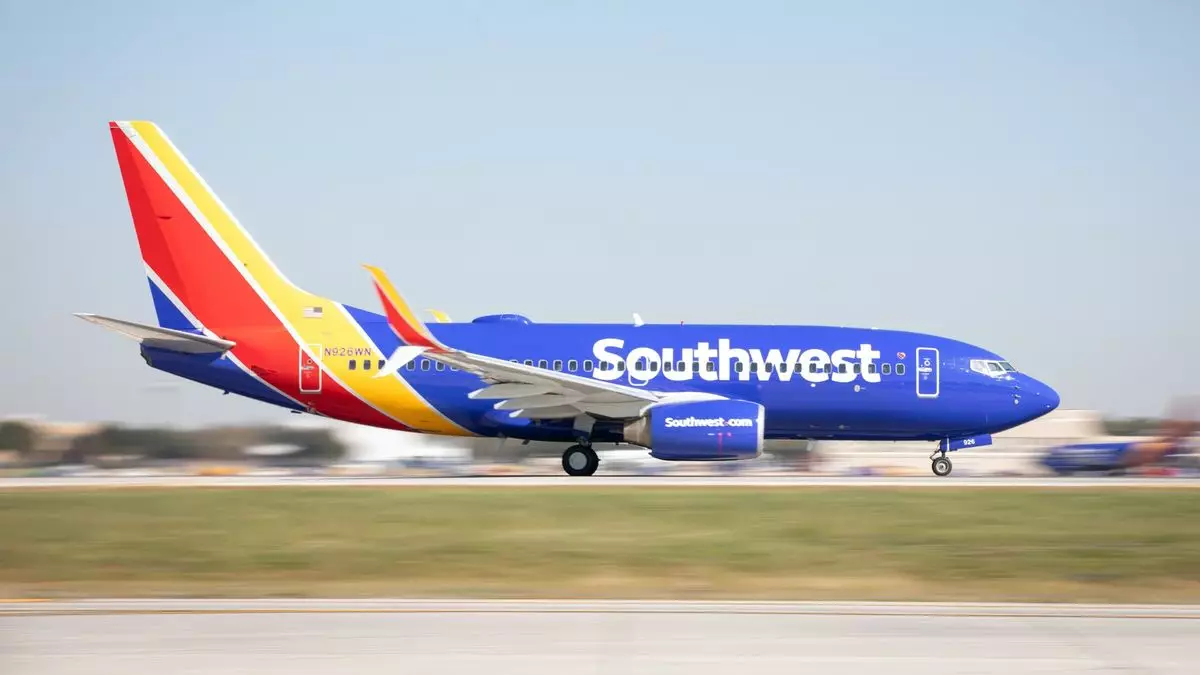The ongoing battle between regulatory bodies and airlines over flight timeliness has intensified, resurfacing crucial issues related to consumer rights and airline accountability. Recently, the Transportation and Justice departments have taken a significant step by filing a lawsuit against Southwest Airlines, alleging the operation of two flights that were persistently delayed throughout the spring and summer of 2022. This marks a pivotal moment in the evolving landscape of airline regulation, especially as the Department of Transportation (DOT) seeks to enforce stricter measures against chronically delayed flights—defined as those arriving over 30 minutes late more than half the time for a minimum of four consecutive months.
The lawsuit, filed in the U.S. District Court in San Francisco, seeks to impose substantial fines on Southwest Airlines, arguing that such delays reflect unrealistic flight scheduling practices. Complexities surrounding flight operations heighten the tension between regulatory enforcement and the operational independence of airlines, and the legal ramifications of this case could set a precedent for future airline operations.
According to the DOT, the two targeted Southwest flights involved routes between Chicago and Oakland, California, and between Baltimore and Cleveland, both of which reportedly exhibited chronic delays from April to August 2022. Each violation could potentially incur a staggering fine of up to $37,377 per day. This raises significant questions about race and accountability within the airline industry, prompting a broader conversation around consumer protection and the reliability of air travel.
In response to the allegations, Southwest Airlines expressed disappointment, asserting that the complaint is unfounded and does not accurately reflect the airline’s performance history. Claiming over 20 million flights without such violations since the DOT implemented its Chronically Delayed Flight policy in 2009, Southwest insists that these two delayed flights do not represent a systemic issue within the organization. In defense of its operational credibility, the airline highlighted its over 99% flight completion rate in 2024.
The DOT’s aggressive stance is indicative of a broader regulatory trend focused on reinforcing consumer rights and discouraging unfair business practices in the airline industry. Recent actions signal that airlines may face far-reaching consequences not only for operational shortcomings but also for how they safeguard passengers’ experiences. This initiative has already seen its first penalty against JetBlue, amounting to $2 million, which the carrier settled as part of a consent decree, opting to avoid costly litigation.
As the regulatory landscape evolves, the choices made by various airlines in response to the DOT’s new approach further illustrate the complex dynamics at play. Southwest, for instance, has engaged in direct litigation to contest the allegations, while Frontier Airlines has chosen a less confrontational route, agreeing to pay a reduced fine in a consent decree rather than risking legal action. This divergence in response strategies could have significant implications for how airlines operate and manage delays moving forward.
The lawsuits against these airlines occur against a backdrop of changing leadership within the DOT, especially under Secretary Pete Buttigieg’s administration, acknowledged for adopting a more stringent regulatory perspective than predecessors. His departure will coincide with the upcoming transition in presidential leadership, which presents uncertainty about future regulatory approaches. The nomination of Sean Duffy, a former congressman and Fox News commentator, as the incoming Secretary indicates potential shifts in policy focus and enforcement priorities within the Department.
As airlines navigate these challenges, they must grapple with the delicate balance of operational efficiency, customer assurance, and adherence to regulatory standards. Both Southwest and Frontier Airlines face critical crossroads that have the potential to redefine their operational frameworks in a post-litigation environment.
As airline travelers increasingly prioritize reliable air service, regulatory actions such as those pursued by the DOT underscore the crucial necessity of holding airlines accountable. The litigation against Southwest Airlines and the consent decree involving Frontier differentiate the industry’s responses, ultimately aiming to protect consumer interests. Navigating this evolving landscape, it becomes evident that the pursuit of a more punctual, trustworthy airline experience hinges on the relentless scrutiny of regulatory frameworks and their enforcement. Whether by fostering significant improvements within airlines or deterring further recalcitrance through stringent penalties, the overarching objective remains clear: to elevate the standards of air travel for all.


Leave a Reply